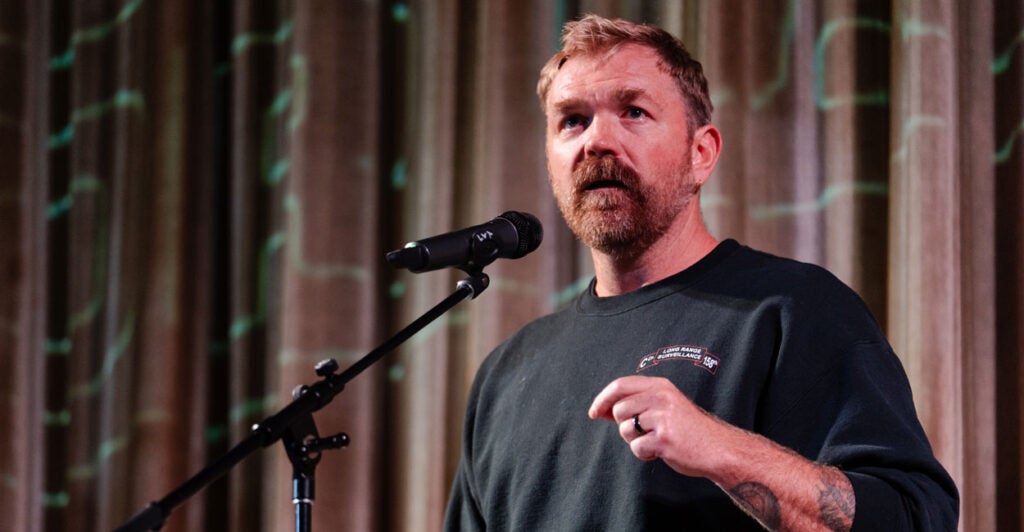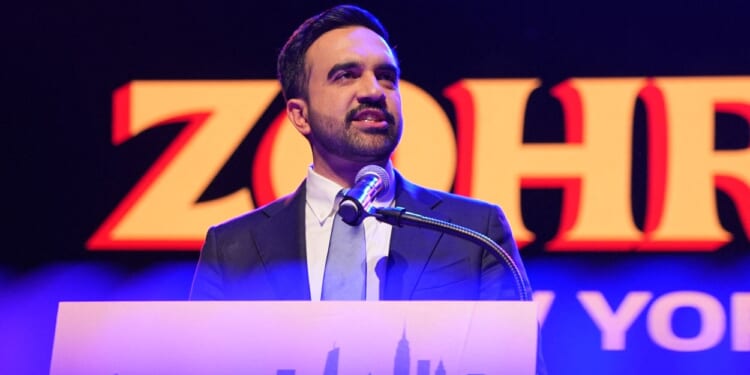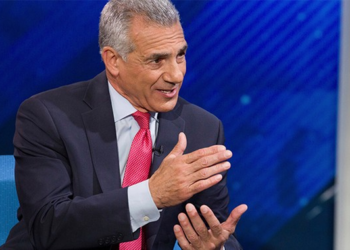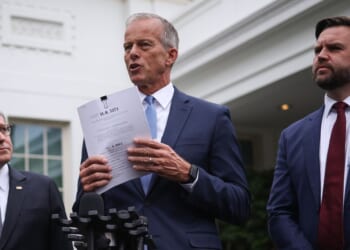One year since President Donald Trump swept the swing states in the 2024 election, Democrats are starting to find their footing again. New York City Mayor-elect Zohran Mamdani, a 34-year-old self-identified socialist, appears to have breathed new life into the party.
One of the biggest questions for national Democrats in the last few months has been whether they will endorse Mamdani.
Young, highly critical of the Israeli government, and enthusiastic about government intervention such as city-run grocery stores and rent freezes, he won over 50% of the vote in America’s largest city.
Mamdani’s vision has forced national Democrats to pick a side. Over the course of his campaign, Mamdani racked up endorsements from House Minority Leader Hakeem Jeffries, D-N.Y., and prominent progressives, such as Sen. Bernie Sanders, I-Vt., and Rep. Alexandria Ocasio-Cortez, D-N.Y. Others, like Senate Minority Leader Chuck Schumer, D-N.Y., declined.
Increasingly, the major figures of the Bill Clinton and Barack Obama eras are leaving the spotlight. Young politicians closer to Mamdani’s age group are taking the stage.
On Thursday, just two days after Mamdani’s victory, Rep. Nancy Pelosi, D-Calif., a major party figure for the past four decades, announced she would retire at the end of her term, reinforcing the broader changing of the guard in the Democratic Party.
Pelosi, who is 85 years old, did not explicitly state a reason for retiring in her announcement video. Scott Wiener, a 55-year-old California state senator, has been exploring a run in Pelosi’s district.
Rep. Jerry Nadler, D-N.Y., who is 78 years old, also announced his decision to retire earlier this year as he faced a well-funded and much younger primary challenger.
More Democrats could depart thanks to the Mamdani wing’s momentum. Throughout the shutdown, Republicans have argued that Senate Minority Leader Chuck Schumer, D-N.Y., is motivated by fear of the left flank of his party—specifically, a primary challenge from Ocasio-Cortez in 2029.
Ocasio-Cortez has not ruled out challenging Schumer, and a May poll from the Honan Strategy Group shows her leading Schumer by a whopping 21-point margin in a poll of New York Democrats.
To make matters worse for the embattled Senate Democrat leader, multiple Democrat Senate candidates are making a point of criticizing Schumer’s leadership on the campaign trail after some Democrats caved on their government shutdown demands.
James Talarico in Texas, Graham Platner in Maine, as well as Abdul El-Sayed and Mallory McMorrow in the Michigan Senate primary, have all harshly criticized Senate Democrats for allowing the government to reopen. These Democrats, competing in the most high-profile Senate races, are making a point of presenting themselves as the new generation of left-wing politics.
Is the Mamdani Phenomenon Going National?
It remains to be seen whether the Mamdani phenomenon can be replicated in other parts of the country, however.
While Democrats swept Tuesday’s elections, Democrat candidates in Virginia and New Jersey saw progressive extremism as a liability and had to spend more money to shore up their elections in otherwise easy-to-win races.
“If anyone can show a nation betrayed by Donald Trump how to defeat him, it is the city that gave rise to him,” Mamdani said in his victory speech. “And if there is any way to terrify a despot, it is by dismantling the very conditions that allowed him to accumulate power.”
In Maine, Platner is seeking the Democrat nomination in a bid to unseat Republican Sen. Susan Collins, the only Republican member of Congress from New England.
Platner’s performance in the primary could be a litmus test for the popularity of Mamdani-style politics among Democrats across the country.

His campaign is in many ways similar to Mamdani’s, with his criticism of Israel, focus on billionaires, and support of large-scale government assistance such as Medicare for all.
On an organizational level, Platner is also following the Mamdani model. Platner shares a strategist with Mamdani, Morris Katz, and has pursued a social media-heavy strategy that leans into ultra-progressive policy stances.
Platner is facing off against an older and much more conventional candidate in the Democratic primary, the 77-year-old Maine Gov. Janet Mills.
A recent poll from SoCal Strategies shows Mills with a five-point lead over Platner in the primary.
There’s also Michigan, where a three-way Democrat Senate primary race could play a major role in determining the direction of the Democratic Party.
El-Sayed, former Wayne County health director, is in many ways similar to Mamdani.
El-Sayed is highly critical of Israel, supports “Medicare for All,” and speaks proudly of his Muslim background. As with Mamdani and Platner, he also has received support from Sanders in the past.
McMorrow, another Democrat candidate and a state senator, has also pursued a social media-focused strategy and has advocated cutting off arms shipments to Israel.

El-Sayed and McMorrow are facing off against Rep. Haley Stevens, D-Mich., a strongly pro-Israel, relatively moderate candidate who is running a more conventional campaign. Michigan, a state Trump won in 2024, could be perhaps the greatest litmus test of all of whether or not the Mamdani phenomenon is going national.
















